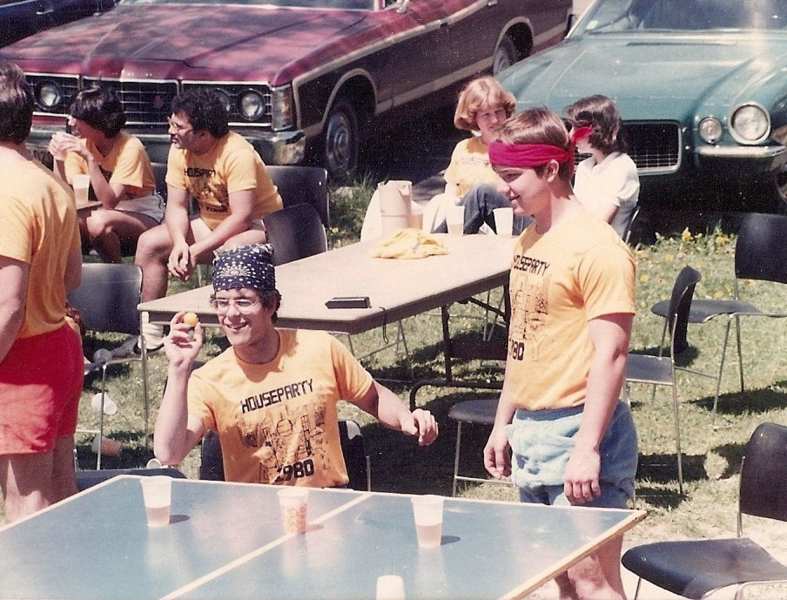As a small business owner, I’m continually frustrated with the quality of recently minted college graduates. It is not due to their lack of technical skills as it is to what I perceive are bad habits they learned as a full-time college student. Bad habits are especially frustrating given that many of the graduates are entering the job market as freelancers.
As of this article being written, over one-third of all jobs belong to freelancers and the self-employed. College primarily addresses people looking for entry-level technical positions at large companies, and therefore, has done an increasingly poor job at not addressing real issues that small business owners and freelancers are facing.
College, in my opinion, is a breeding ground for many bad habits that are not valued in the small business and entrepreneurial world but are also incompatible with the person’s future career success. Here are five bad habits that college students need to drop in order to succeed in the real world.
Work-Life Division
While in college, my friends worked hard taking classes and studying… but they also partied hard too. College taught them there is time to work, being on the clock and a time to party, being off the clock.
Given that 89% of all businesses employ fewer than twenty workers, according to the Small Business and Entrepreneurship Council. Working for a small business is quite different than working for a company with hundreds of employees. Small businesses require employees willing to hustle and do whatever is necessary to keep their doors open, such as working whenever the time is right and not based on the day of the week or on a clock.
When the proverbial whistle blows at the end of a workday, younger college-educated workers switch gears and consider themselves to be off the clock. After five, they are on “me time” which is time for them to do something fun or relaxing. Working as a freelancer or for a small business often requires working beyond the standard nine to five. This is especially true for service-related businesses. Even when offered the opportunity to earn time and a half, many workers complain that it cut into their off time and they refused to work any overtime unless they are in a hard financial position.
As an entrepreneur, I work when I have to and take time off when I need it. In fact, I often choose to participate in “off the clock” activities when everyone else is working their nine to five jobs. I may watch a new movie matinee or go out to an early dinner in the middle of the week while everyone else is still working at their day job. I have gone sailing, played golf and ridden my motorcycle in the mountains for a few hours in the middle of the day to avoid weekend crowds. Due to this, I might work on Saturday and Sunday when everyone else is doing their time-off things.
Fostering a nine to five mentality of being on and off the clock, while acceptable in larger corporations, is one of the bad habits that college indirectly teaches its graduates that follow an entrepreneurial path in life or work for a small business.
Teamwork
Another bad habit instilled into college graduates is related to the idea of teamwork. College is about personal accomplishment and achievements. Students are encouraged to study and complete assignments on an individualized basis, more or less.
In the real world, it is not about the person but the business. The goals of a business are paramount, so companies encourage teamwork and collaboration to achieve them. A person’s strengths and weaknesses are assessed and teams are formed to leverage each individual’s skill and complement their areas of weakness.
In college, if you and a partner divided up the content areas covered by an upcoming test and then shared your answers while taking a test, it would be considered cheating. However, that is exactly what we do in business. Each person on a team is responsible for a specific area and the team collaborates to accomplish the goal. While teamwork is not encouraged in college, it is highly valued in the workforce.
Failure
How a person views failure is yet another bad habit people learn in college. While failure is considered to be a normal and healthy part of life, college does not share this viewpoint.
College teaches students that failure is bad and should be avoided. To avoid failure means to not take any risks. College teaches students to risk less.
The greatest teacher in life is failure. Nobody enjoys failure, but through our failures, we learn important life lessons. Without failures, we will never grow, mature or achieve new understanding. Small failures are tolerated in business as they produce knowledge.
“If things are not failing you are not innovating.”
Elon Musk
One needs the ability to experiment or experience Kenntnis learning through both successes and failures to learn and find their passion in life.
In college, failure is not rewarded or even tolerated. Students are taught that failure is bad and should be avoided at all costs. At the first sign of impending failure, students often drop classes rather than take a hit to their GPA. Avoiding failure is another way that college teaches graduates to take the “safe” path through life, which might explain why so many college graduates remain employees to avoid the perceived risks associated with entrepreneurship.
Do It All Mentality
College reinforces the notion that graduates will do everything career-related after graduation, even if those efforts are not the best use of a person’s time and skills. College trains students to be a “doer of all things”. Getting help or assigning work to others who may be better suited to do the work is not tolerated.
When it comes to being self-employed, learning to outsource every non-critical task is the recipe for success, while trying to do everything yourself is a recipe for business failure.
Being self-employed means only expending effort on activities where you have a competitive advantage and leveraging others to do the other parts- often at a much lower rate so the business can capture the margin. This is known as Labor Arbitrage.
Too many of my clients with a college education think that it is still important to do everything themselves. While they may command an hourly rate of $60 an hour, they insist on doing things like designing and building their own web page, something that could be outsourced for much less to a more qualified web designer and developer in India.
Effort vs Results
College teaches you to put in the effort. An assignment might be to read several chapters in a textbook. To verify that you read the text, students are given a test with questions about obscure passages in the text to verify that the student put in the effort. In the real world, nobody cares about the effort- they care about results. Workers that can achieve results with less effort are rewarded.
Do you believe college teaches bad habits? Let me know in the comments below.












